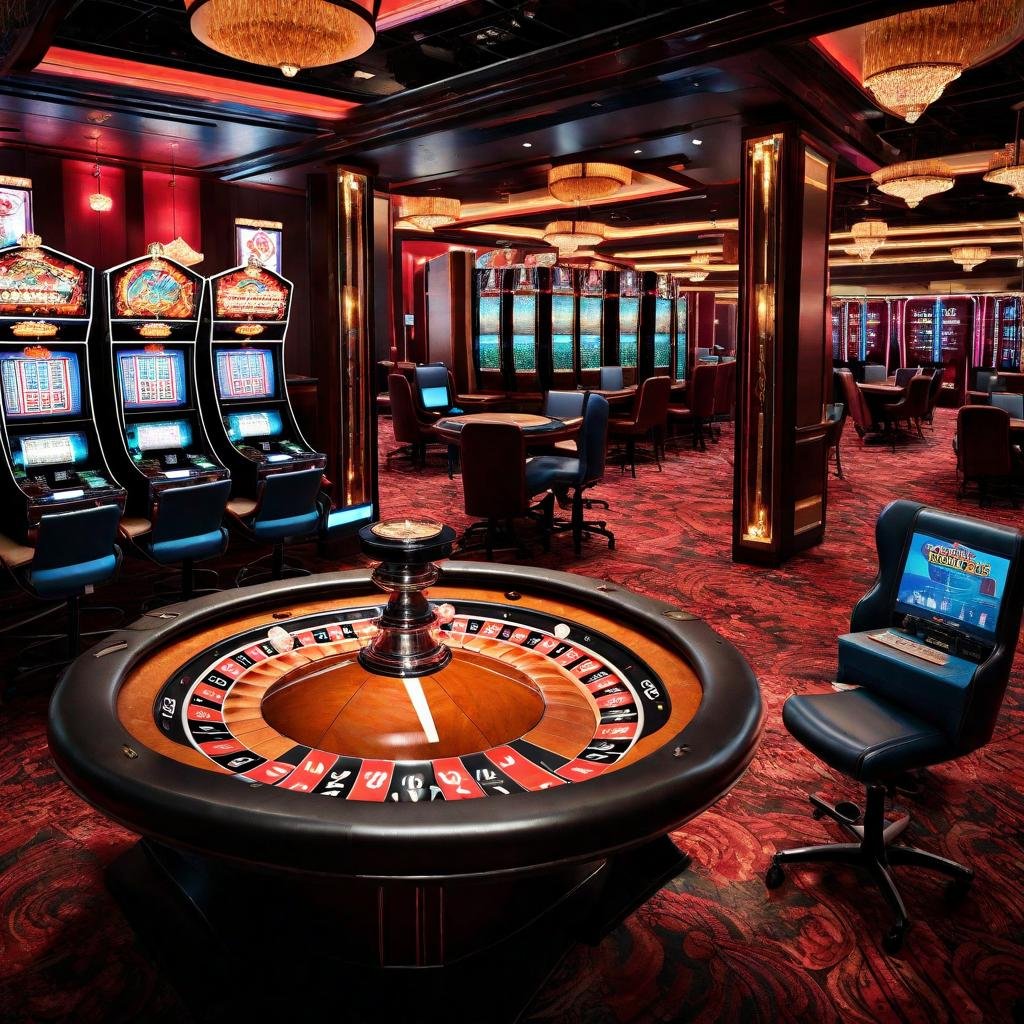
In the lively world of casino games, few titles evoke as much excitement and intrigue as roulette. This timeless game, with its spinning wheel and bouncing ball, has engaged players for ages, combining the excitement of luck with the allure of tactical play. As players gather around the cloth-draped table, the atmosphere thrums with tension, each bet a dance between risk and gain.
Roulette stands out not only for its ease of play but also for the strategic depth it offers. While the outcome is ultimately determined by chance, experienced players know that certain tactics can influence their odds of success. Whether you are a veteran gambler or a newcomer drawn by the flashing lights of the casino, understanding the nuances of roulette can enhance your experience and maybe lead to rewarding outcomes. In this piece, we will delve into the mechanics of roulette, examining how luck and strategy intertwine to forge one of the most renowned casino games around the world. thể thao 99ok
Comprehending the Game of Roulette
The game of roulette is a classic casino game that combines elements of luck and strategy, rendering it a popular selection among players worldwide. Originating from the 1500s French lands, it has developed into multiple versions, including U.S., European, and French roulette. Each version includes a spinning wheel with numerical pockets, where players set their bets on the potential outcomes of a small sphere landing in one of these pockets.
The essence of roulette lies in its ease. Players have the option to bet on a individual number, a range of numbers, or hues, such as crimson or ebony. The betting layout on the table provides a range of wagering choices, allowing participants to take part according to their risk appetite and strategies. 99ok As the dealer spins the wheel and lets go of the ball, the excitement builds, ultimately bringing an electric atmosphere to the casino floor.
While roulette may seem largely governed by chance, many players develop strategies to enhance their odds of winning. Some often used strategies include the Martingale system, where players double their bets after losses, and the Fibonacci strategy, which entails betting based on the famous Fibonacci sequence. Regardless of the method applied, comprehending the rules and probabilities of the game is crucial for any player who wants to make smart decisions at the roulette table.
Techniques for Winning
When playing roulette, one of the most effective strategies is the Martingale approach. This tactic involves doubling your bet after every loss, which means that when you eventually win, you will recover all your previous losses and gain a return equal to your original bet. While this strategy can be appealing, it demands a substantial bankroll and comes with the chance of hitting table limits, which could prevent you from continuing to double your bets.
Another frequent strategy is the Fibonacci approach, which is derived from the famous Fibonacci sequence. In this approach, players increase their bets according to the sequence after a loss, and reduce them after a win. This strategy allows for more controlled betting, potentially lowering the risk of significant losses. While it does not guarantee a win, it can help manage your bankroll effectively and create a more orderly betting environment.
Finally, the D’Alembert system offers a different tactic by adjusting your bets in tiny increments. After a loss, you increase your bet by one unit, and after a win, you lower it by one unit. This strategy aims to balance out wins and losses over time, making it a more secure alternative for players who like a more conservative approach. By applying these strategies, players can improve their gameplay and amplify the chances of success at the roulette table.
The Significance of Chance in Gambling
Luck plays a crucial role in the nature of casino games, particularly in games like slots where outcomes are inherently unpredictable. Players place their bets with the understanding that the result is determined by chance, such as the spin of the wheel and the bouncing ball. This randomness adds an exhilarating element to the experience, as each round provides a new opportunity to succeed or lose. Understanding that the game is governed by chance helps to shape player expectations and strategies.
While luck is a significant factor, the influence of luck extends beyond mere winning and losing. It serves as a crucial reminder of the inherent dangers involved in betting. Players often grapple with the urge to believe that certain sequences or streaks can predict future outcomes, yet the truth is that each spin of the game is independent. This unpredictability can lead to disappointment, but it also fuels the thrill that keeps players returning to the casino.
Ultimately, the essence of casino games lies in striking a balance between luck and strategy. While players can use different strategies and betting systems in an attempt to gain an edge, the element of luck ensures that no approach can guarantee success. This dynamic balance between skill and chance is what defines the allure of roulette, creating an environment where every player hopes to defy the odds.
